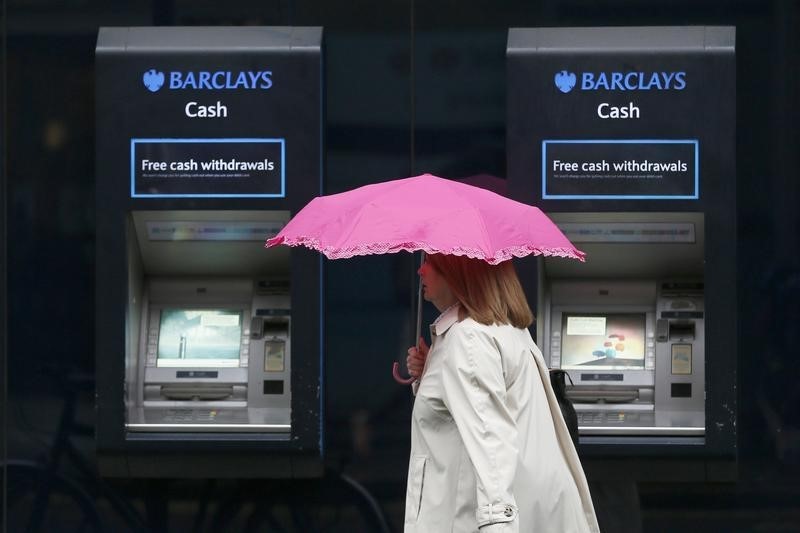By Lawrence White and Andrew MacAskill
LONDON (Reuters) - British banks are prepping staff to deal with a barrage of questions from retail and small business customers after the country's June 23 vote on whether to stay in or leave the European Union.
HSBC (L:HSBA), Barclays (L:BARC), Lloyds (L:LLOY), RBS (L:RBS) and Nationwide <POB_p.L> have all briefed staff on how to respond to customer queries on both outcomes of the vote, with foreign exchange risks expected to be the biggest concern, according to sources at the banks.
The banks have circulated question and answer scenarios to staff with suggestions on how to respond to specific questions, particularly if a vote to leave triggers a sharp fall in the pound.
Call centre staff at HSBC's customer contact centres across Britain have been given scripts detailing responses to likely customer questions. Building society Nationwide said it had also been advising its teams how to respond.
"Our employees have been briefed and if our members have concerns or questions in relation to this matter we will address those with them," a spokesman for Nationwide said.
The other banks declined to comment in detail on their plans.
One bank, which asked not to be identified, said its own Q&A document included whether a 'leave' vote would make a customer's mortgage more expensive; whether it might affect a student studying in Europe; and whether investments would be impacted.
Some small businesses may be among those most in need of help because not that many have taken out insurance against a sharp move in the pound following the referendum.
Customer questions about taking out insurance on the value of the pound have increased four-fold in the last 6-8 weeks, according to Abhishek Sachdev, managing director of Vedanta which advises small businesses on hedging risk.
Sachdev said 10-day volatility in the sterling/euro had increased from 6 percent to 14 percent in the last two weeks, showing the impact of recent opinion polls which have highlighted that the result may be too close to call.
"This kind of volatility is making our message that companies need to consider how they hedge against such risk easier to understand, because customers are scared," Sachdev said.
Four-fifths of Britain's major companies have hedged against the risk that a vote to leave the European Union would knock more than 10 percent off the value of sterling, a poll of almost 800 of the top 1,000 showed last month.
But only 22 percent of smaller businesses said they had hedged, the survey showed.
The close nature of polls attempting to predict the outcome has made it difficult for smaller companies to decide whether they need to 'hedge' or insure against such currency risks, bankers said.
Polls on Monday showed the campaign for Britain to leave the European Union has taken a 4-5 percentage point lead, sending sterling towards three-week lows against the U.S. dollar.
"For a small business owner it's hard to know whether to hedge, you either did the deal of a lifetime or destroyed a lot of value come June 24," a senior banker at one of Britain's big four banks said.
